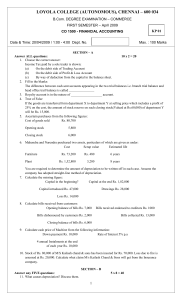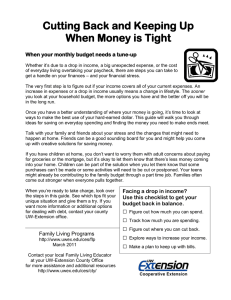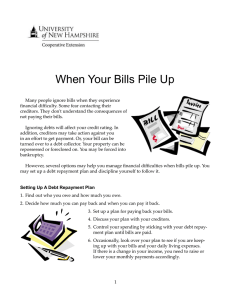Cutting Back and Keeping Up
advertisement
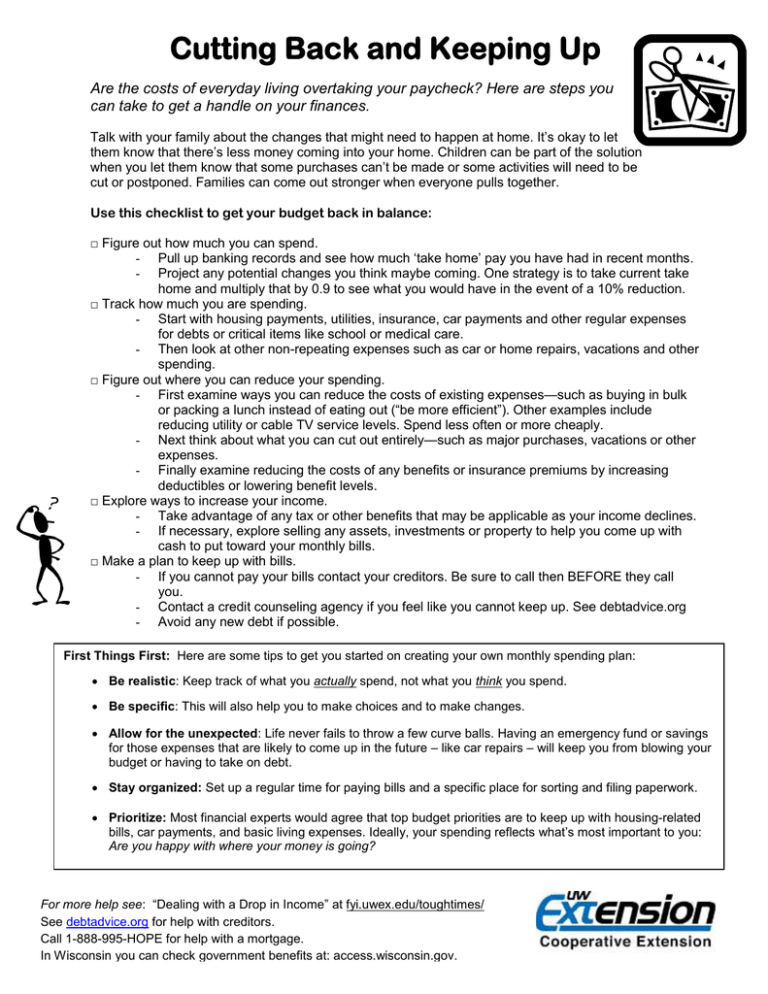
Cutting Back and Keeping Up Are the costs of everyday living overtaking your paycheck? Here are steps you can take to get a handle on your finances. Talk with your family about the changes that might need to happen at home. It’s okay to let them know that there’s less money coming into your home. Children can be part of the solution when you let them know that some purchases can’t be made or some activities will need to be cut or postponed. Families can come out stronger when everyone pulls together. Use this checklist to get your budget back in balance: □ Figure out how much you can spend. - Pull up banking records and see how much ‘take home’ pay you have had in recent months. - Project any potential changes you think maybe coming. One strategy is to take current take home and multiply that by 0.9 to see what you would have in the event of a 10% reduction. □ Track how much you are spending. - Start with housing payments, utilities, insurance, car payments and other regular expenses for debts or critical items like school or medical care. - Then look at other non-repeating expenses such as car or home repairs, vacations and other spending. □ Figure out where you can reduce your spending. - First examine ways you can reduce the costs of existing expenses—such as buying in bulk or packing a lunch instead of eating out (“be more efficient”). Other examples include reducing utility or cable TV service levels. Spend less often or more cheaply. - Next think about what you can cut out entirely—such as major purchases, vacations or other expenses. - Finally examine reducing the costs of any benefits or insurance premiums by increasing deductibles or lowering benefit levels. □ Explore ways to increase your income. - Take advantage of any tax or other benefits that may be applicable as your income declines. - If necessary, explore selling any assets, investments or property to help you come up with cash to put toward your monthly bills. □ Make a plan to keep up with bills. - If you cannot pay your bills contact your creditors. Be sure to call then BEFORE they call you. - Contact a credit counseling agency if you feel like you cannot keep up. See debtadvice.org - Avoid any new debt if possible. First Things First: Here are some tips to get you started on creating your own monthly spending plan: Be realistic: Keep track of what you actually spend, not what you think you spend. Be specific: This will also help you to make choices and to make changes. Allow for the unexpected: Life never fails to throw a few curve balls. Having an emergency fund or savings for those expenses that are likely to come up in the future – like car repairs – will keep you from blowing your budget or having to take on debt. Stay organized: Set up a regular time for paying bills and a specific place for sorting and filing paperwork. Prioritize: Most financial experts would agree that top budget priorities are to keep up with housing-related bills, car payments, and basic living expenses. Ideally, your spending reflects what’s most important to you: Are you happy with where your money is going? For more help see: “Dealing with a Drop in Income” at fyi.uwex.edu/toughtimes/ See debtadvice.org for help with creditors. Call 1-888-995-HOPE for help with a mortgage. In Wisconsin you can check government benefits at: access.wisconsin.gov.
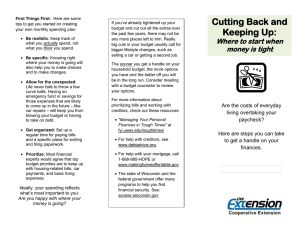
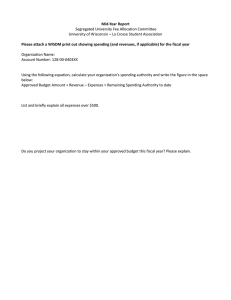
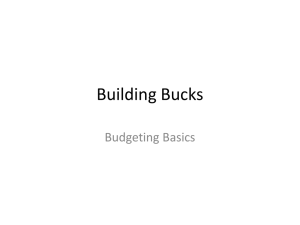


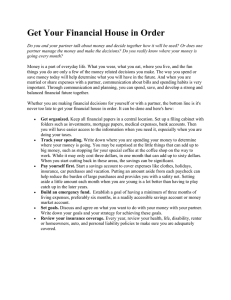
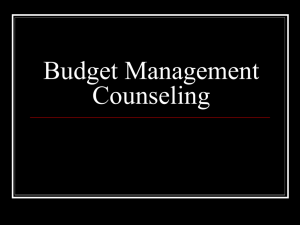
![DATE , and CONTACT INFORMATION]](http://s2.studylib.net/store/data/015001158_1-8b7c27c7ad73c89da45975c5c66f0ddf-300x300.png)
